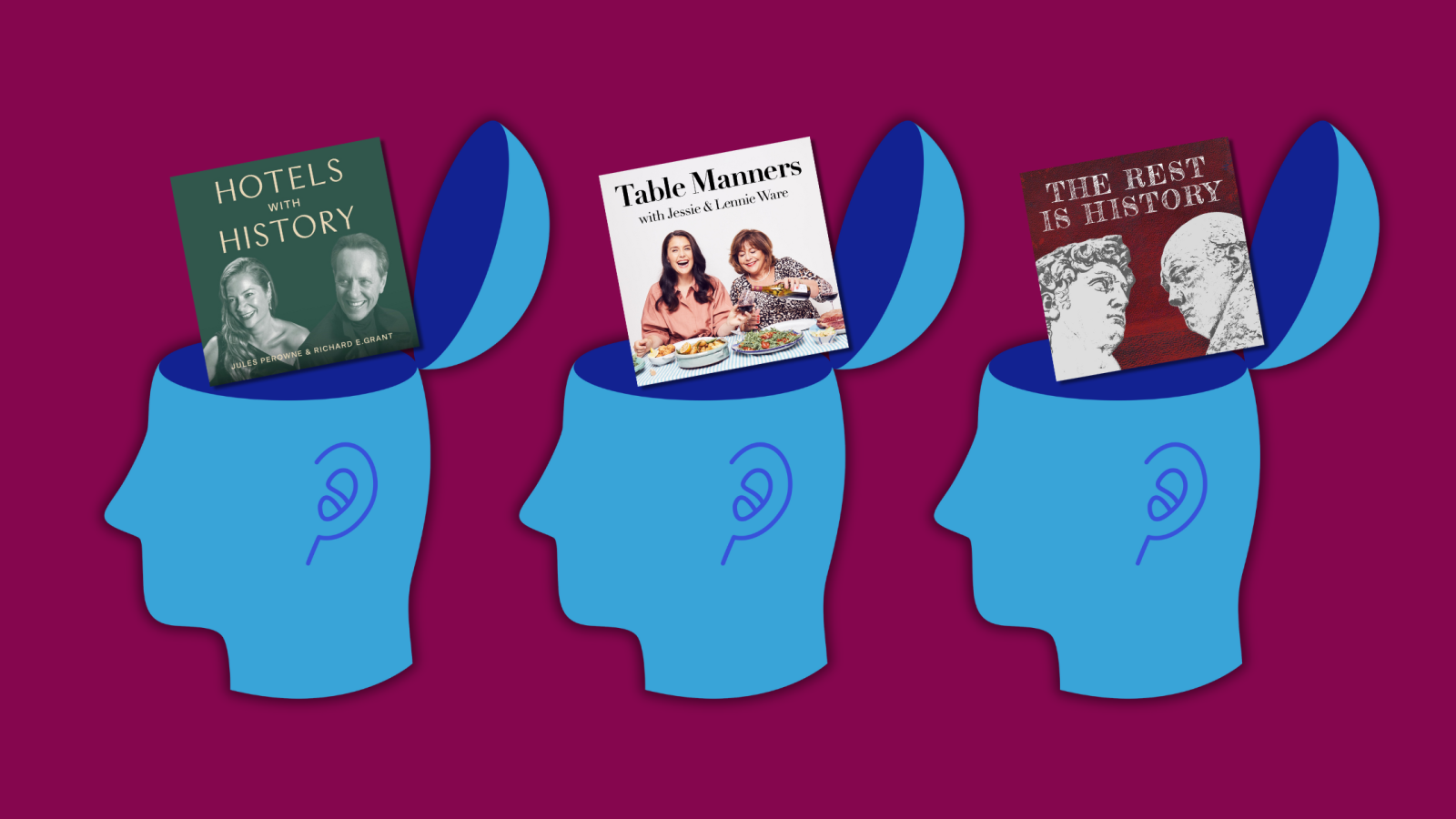Beyond listening: What podcast libraries can tell us about consumer identity

Photo: Hotels with History / Table Manners / The Rest is History

Podcast libraries have evolved beyond a simple log of listening habits, becoming a telling indicator of personal identity. Increasingly, the most revealing source of who someone is may not be their social media feed or viewing history, but the podcasts they choose to follow. The medium’s intimate and co-creative nature mean their listening choices are rarely just about passive entertainment. They often act as quiet, yet revealing, declarations of affiliation. They point to the intellectual tribes a person feels a connection with and the subtle cultural ‘vibe’ they are drawn to. These insights are often difficult to articulate in a survey or grasp through demographic data alone – hence what makes them so valuable. To find this crucial layer of insight, one must look beyond what audiences buy and into what they consume culturally.
The rise of the aspirational podcast
Consider Intelligence Squared’s recent move to produce Hotels with History, a series where Richard E. Grant and Jules Perowne explore iconic establishments. The series starts with Claridge’s and expands globally to showcase some of the world’s most exclusive and sought-after hotels. The strategy here is not to simply review the hotels. Instead, it aims to illuminate the world of these hotels for those who might not be lucky enough to experience them first hand. The listener who subscribes to this podcast is not just interested in the history of hospitality; they are expressing an affinity for the entire sensibility these hotels represent. They are, in effect, immersing themselves in that world for the duration of an episode.
This ability to forge community through a shared sensibility, rather than a shared demographic, is what sets podcasts apart. Subscribers of The Rest is History are a prime example; while listeners may span all ages and incomes, they are united by a common ethos of intellectual curiosity and a particular narrative-driven sense of humour. This shared vibe is powerful enough to transcend the subject matter itself. It shows why initiatives like the show's book club resonate – the link between Horatio Nelson and Camus’ L'Étranger may not be obvious yet feels entirely natural within the confines of the podcast’s community. This is the power of the medium: it builds scenes by connecting people through a shared wavelength, long before any tangible link between the content itself is thought of.
Similarly, a subscriber to a high-end fashion or architecture podcast is often seeking more than information; they are engaging with the mythology and cultural codes of that world. Their subscription is a badge of belonging to a specific tribe of thought.
Featured Report
MIDiA Research 2026 predictions Change is the constant
Welcome to the 11th edition of MIDiA’s annual predictions report. The world has changed a lot since our inaugural 2016 edition. The core predictions in that report (video will eat the world, messaging apps will accelerate) are now foundational layers of today’s digital economy.
Find out more…Strategic implications for audience intelligence
For brands and strategists, this shift presents a significant opportunity to move beyond superficial targeting and build deeper cultural resonance.
The primary takeaway is the move towards affinity-based alignment. A partnership with a podcast should be less about reaching a demographic and more about associating a brand with a well-defined ethos. A luxury brand, for example, will find more value in sponsoring the Hotels series – where it underwrites a vibe of heritage and craft – than in placing an ad on a broadly popular show with a less-defined audience identity.
A podcast library offers a longitudinal view of cultural priorities. Unlike a single purchase or a fleeting social media engagement, a subscription represents an ongoing commitment to a particular worldview. This provides a much richer, more stable understanding of a consumer's core values and aspirational self than many other data points.
As the media landscape continues to fragment, the signals of consumer identity become more nuanced. The podcasts an individual chooses to listen to offer a powerful and underutilised key to decoding their aspirations. For any entity seeking to understand the 'why' behind consumer behaviour, the message is clear: don’t just consider who they are on paper, start considering what they listen to. Their podcast library is the profile they will never write.
Image credits: Hotels with History / Table Manners / The Rest is History

The discussion around this post has not yet got started, be the first to add an opinion.